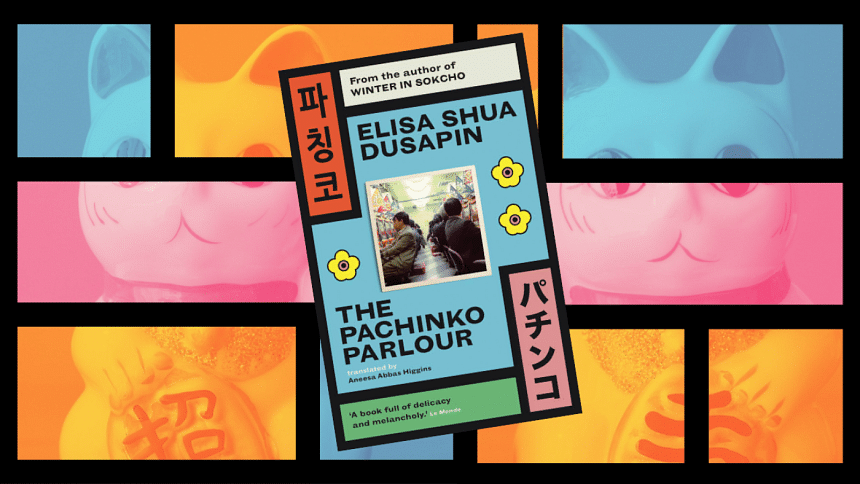Learning to let go

To care for ageing relatives is to learn to let go, in gradual increments, your idea of the people they used to be, as they navigate the changing dynamics of the role reversal between them and you. It is a continued process of forgiving them for repeating patterns you have had to heal from again and again. You're achingly aware of how little time you have left together, and yet there is something mind-numbingly tedious about the everyday aspect of it. Because South Asian societies would rather preach duty, guilt, and shame than show compassion or even guidance for those struggling with the mental toll of elder care, you struggle to articulate the nature of all these weighty emotions, feeling increasingly alienated and misunderstood.
That is until you walk into your local bookstore one day, and pick up a copy of The Pachinko Parlour by Elisa Shua Dusapin. You're not expecting to relate to it, at least not regarding your present situation; the author is Franco-Korean and all her books are set in Europe or East Asia, but you welcome the possibility of an escape into a different setting so you get the book and dive right in.
You meet Claire who comes to Tokyo to summer with her grandparents. Her grandparents are "Zainichis"–Koreans who settled in Japan in the aftermath of the Korean War—and in the tradition of this community, they own and operate a pachinko parlour, which is something like a gaming arcade, considered by many to be soft gambling. Claire and her grandparents are not particularly close. They grew up in a Japanese-occupied Korea where speaking their own language was punishable by death, and now they resist speaking Japanese, which makes it hard for them to assimilate into the country they live in. Claire lives in Switzerland, where Korean is not taught, and so she is studying Japanese, but must communicate with her grandparents in basic English, which doesn't make for a very close relationship.
When the book opens, she has arrived in Tokyo. It's a sweltering summer and Claire, who has been trying to convince her grandparents to join her on a visit to Korea for a few years now, is once again met with a stubborn resistance. To break up the monotony of her days in this city, she takes up a part time job, tutoring a local child, Mieko, in French. Mieko lives with her mother, and her memories of a vanished father, in a deserted hotel.
As the novel progresses, you peel back layers of history between Claire and her grandparents and realise that the Korea issue isn't as straightforward as our protagonist imagined. Claire's grandparents have never quite fit into Japanese society, and yet this small, self-contained world of their apartment, the pachinko parlour, and their small community, is all they know, but as their years begin to catch up to them, even the familiar is starting to become unfamiliar—a source of much distress to their granddaughter. Claire, who is considered exotic in Switzerland, feels alien in Japan, a feeling that is underscored by her interactions with Mieko's mother. She projects some of that on to her grandparents, believing that a visit to Korea, where they're "really from", will be significant in some way, and grapples to understand why they are gently resisting her efforts to make it happen. Driven more by emotion than plot, the story builds gradually until its intense conclusion.
There is a calmness in the sparse prose, the vivid, but restrained descriptions that allows a certain lassitude seep in during the reading of it. You might be reading this book amidst the drone of Dhaka life, far removed from the heat of Tokyo in summer, but will find yourself connecting to everything the narrator communicates without saying it outright—the melancholia, the boredom, and frustration that comes through from her dealings with her grandparents, or even Mieko at times. The book revolves around themes of absence and abandonment, cultural history and identity, belonging and otherness, and language and connection—things that transcend borders and cultural barriers.
By the time you arrive at the emotional conclusion of the novel, you feel seen.
Sabrina Fatma Ahmad is a writer, journalist, and the founder of Sehri Tales.

 For all latest news, follow The Daily Star's Google News channel.
For all latest news, follow The Daily Star's Google News channel. 










Comments